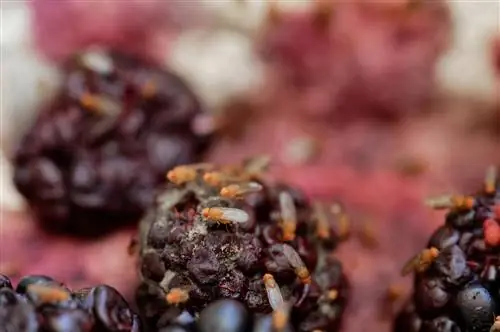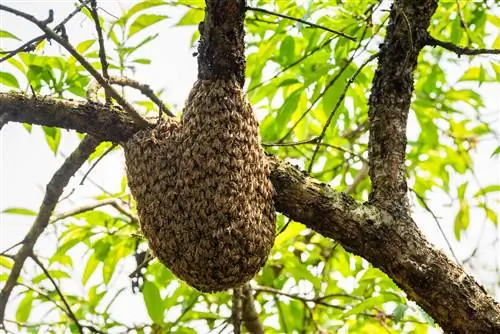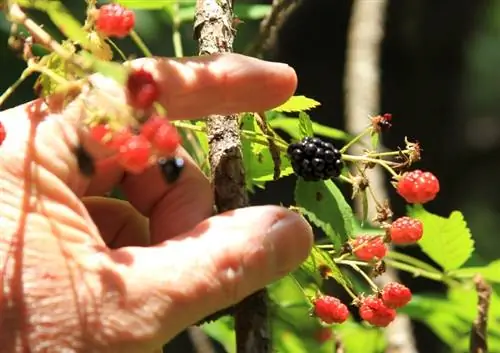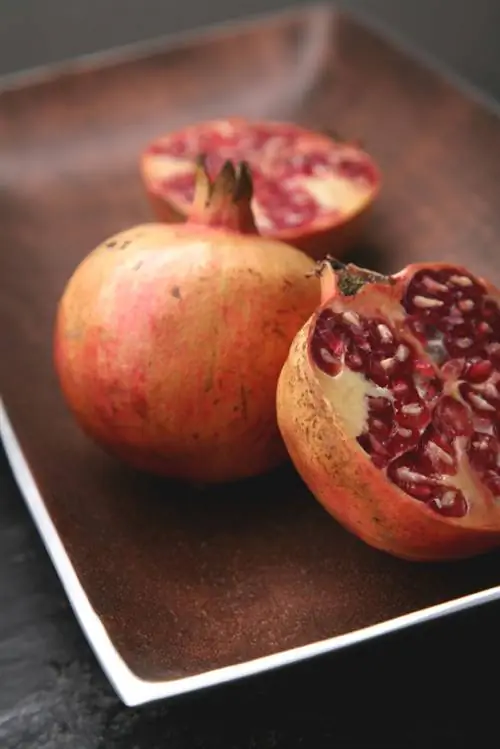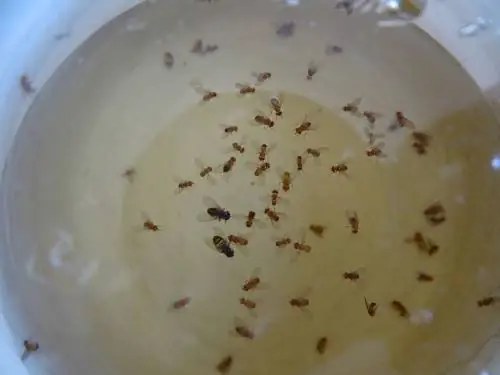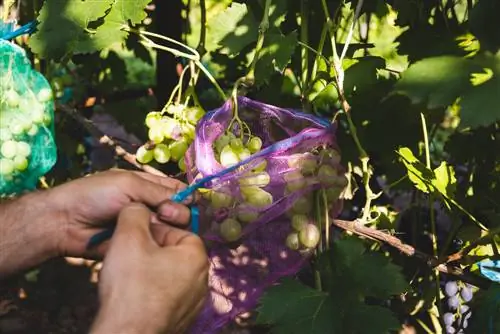- Author admin leonars@hobbygardeners.com.
- Public 2023-12-16 16:46.
- Last modified 2025-01-23 11:22.
Some pest species are permanent guests in the garden and can be tolerated to a certain extent. But the cherry vinegar fly, which recently migrated from Asia, seems to be targeting the entire harvest. Are the pierced blackberries inedible or still edible?
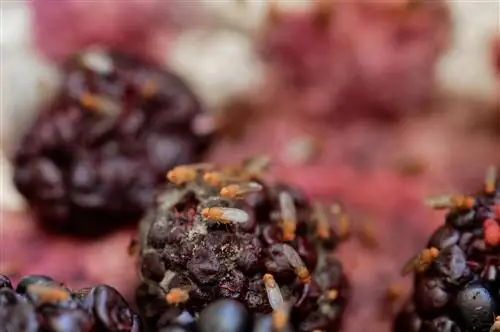
Are blackberries infected by cherry vinegar flies still edible?
Riping blackberry fruits that have been pierced by cherry vinegar flies to lay their eggs will soon becomeno longer edibleThey taste like vinegar and spoil just 2-3 days after laying their eggs. In addition to the maggots eating from the inside, there are also fungi and bacteria that cause them to rot.
How can I recognize the cherry vinegar fly?
The cherry vinegar fly (Drosophila suzukii), which comes from Southeast Asia, looks like this:
- Length: about2-3, 5 mm
- Span: about 5-6.5 mm
- Color:yellow to brown, with dark belly stripes
- Eyes: red
- Wing: dark spot on tip (male)
- long, sharp, toothed egg-laying apparatus (female)
The maggots in blackberries are cream colored and up to 5 mm long.
How does an infestation with cherry vinegar flies manifest itself?
In contrast to the native vinegar fly, which only attacks damaged fruit, the cherry vinegar fly targets he althy, ripe specimens. Affected fruits show these signs one after the other:
- smallpuncture hole (egg-laying site), visible upon closer inspection
- smalldentations, caused by maggots inside
- visible signs ofrot
Since each female cherry vinegar fly can lay more than 150 eggs and the generation cycle is very short, over time more and more fruits will show the damage described above.
How can I get rid of cherry vinegar flies?
Raising cherry vinegar flies quickly from the blackberry bush isalmost impossibleBecause suitable preparations for combating them in the home garden are currently not available. If necessary, if the infestation is very severe, the population can be reduced usingtraps filled with apple cider vinegar or another attractant.
Does the cherry vinegar fly also damage other fruit?
The cherry vinegar fly, which has only been a pest in Germany since 2011, also lays its eggs in other fruits. The subsequent damage occurs very quickly, as with blackberries. These soft fruit varieties are mainly affected:
- Cherry
- Raspberry
- Blueberry
- Strawberry
- Grapes
- Plum
- Peach
- Apricot
- Nectarine
The darker the skin of a type of fruit, the more popular it is apparently with cherry vinegar flies. This also explains why the almost black blackberry fruits are so badly affected.
Can I prevent fruit vinegar flies?
There is only one way to prevent fruit from being punctured. The berry fruit must be coveredwith a very close-meshed net early, immediately after the bush has flowered. Then the ripening blackberries are no longer accessible to the cherry vinegar fly. But covering them is a challenge because blackberries have long tendrils and spines and tend to overgrow. If the cherry vinegar fly cannot fly to the covered blackberry bush, other fruit in the garden may be at greater risk. Covering everything is unlikely to be practical.
Tip
Even he althy-looking fruits can be infected
If you pick ripe fruit that looks he althy from an infected blackberry bush, that does not mean that it is not infected. They can “tip” and become sour in no time. You should dispose of such blackberries immediately.

